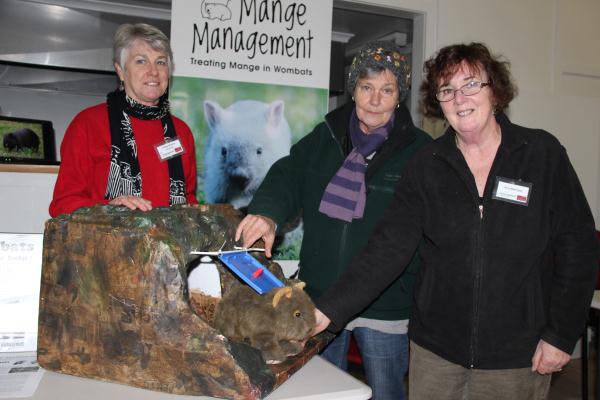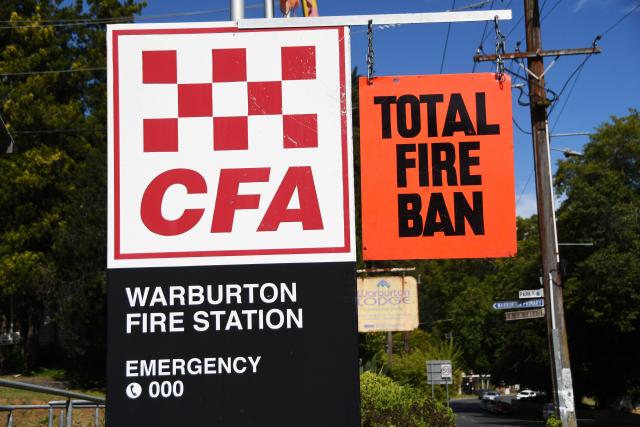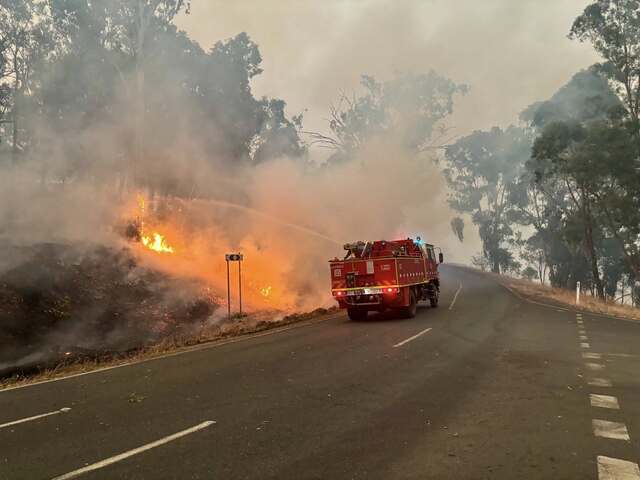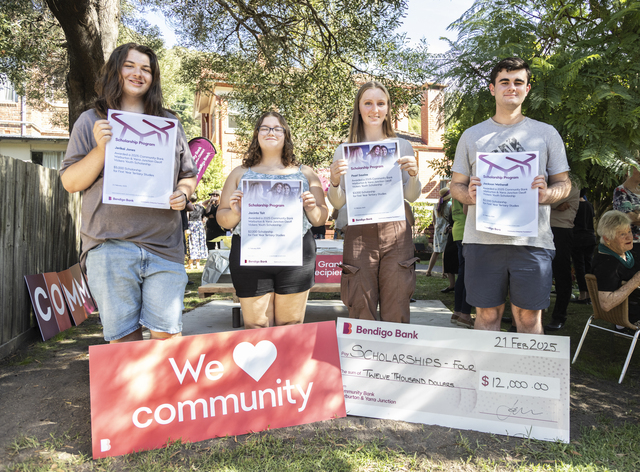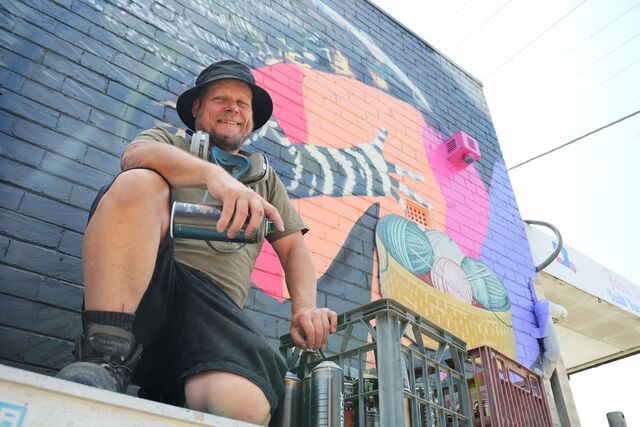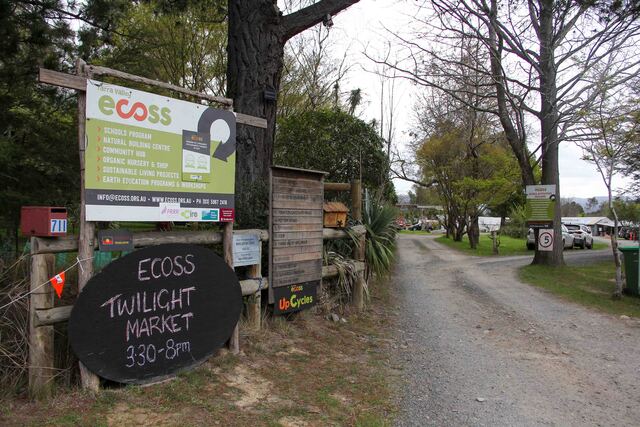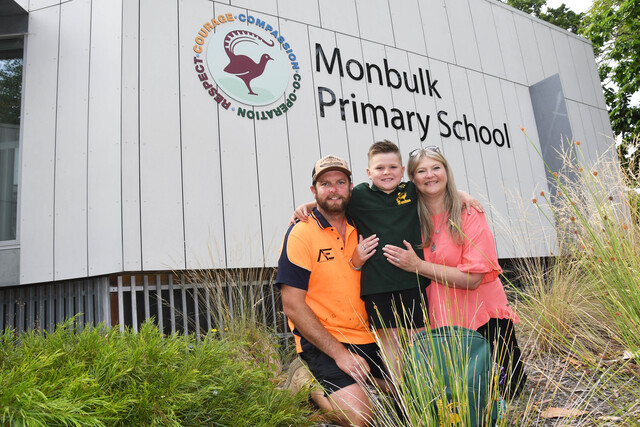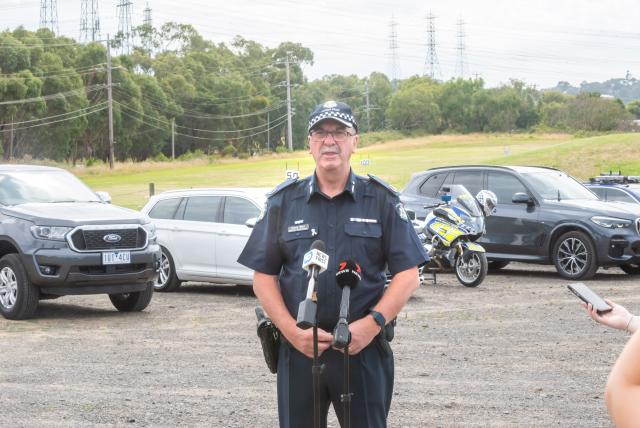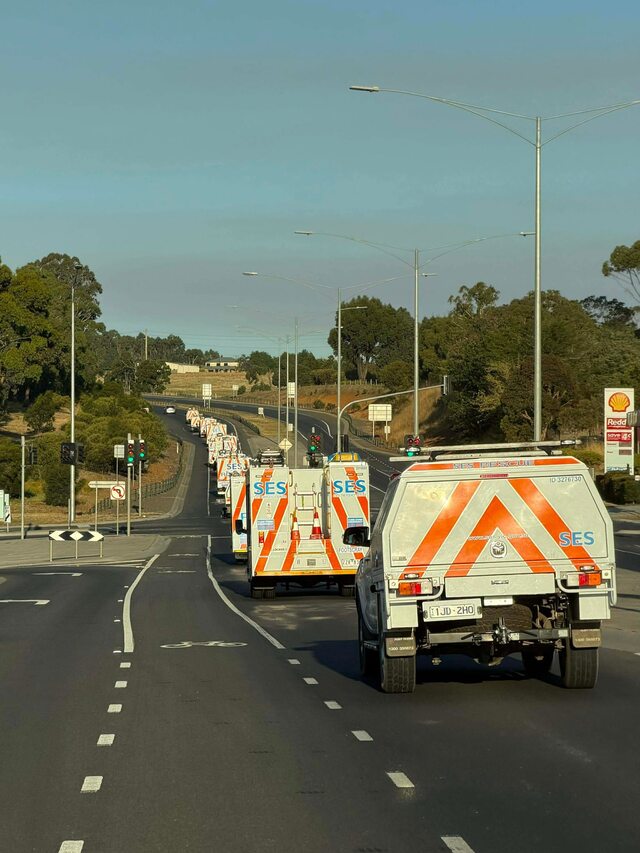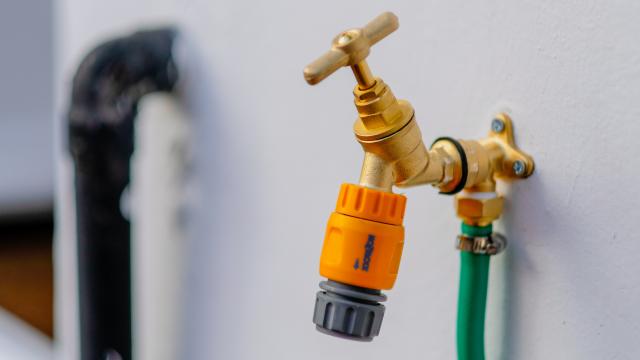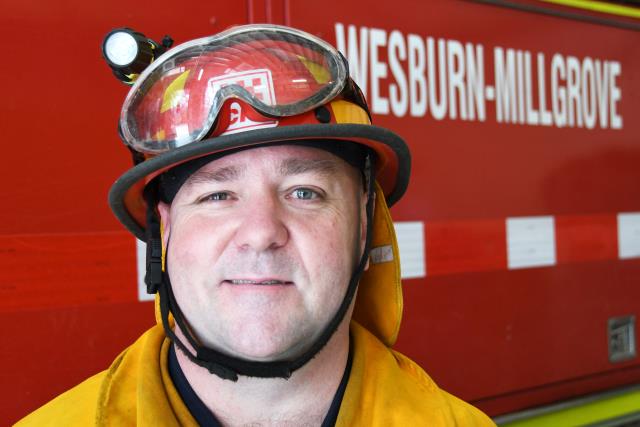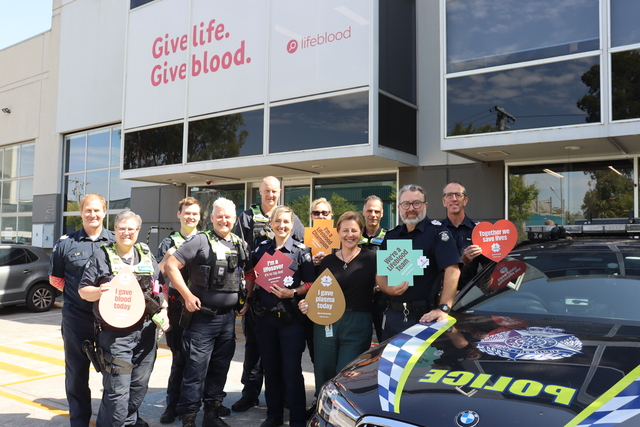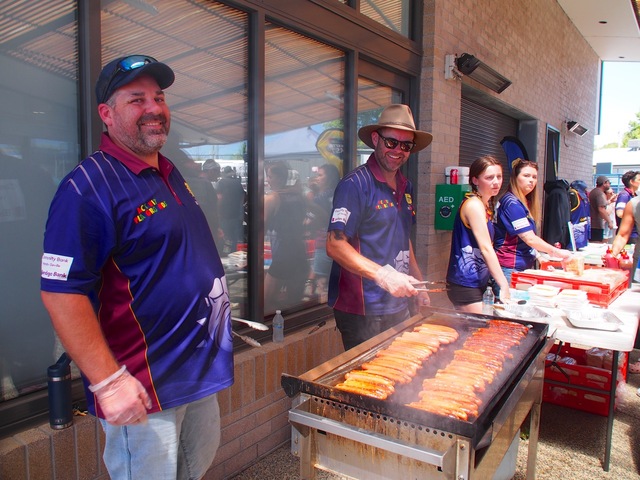By KATH GANNAWAY
PAMELA Wiencke had for a long while dedicated her energies to rescuing injured wildlife, but that energy is now focused on keeping one particular native animal free from pain and disease.
Pamela, from Hoddles Creek, took on the role of volunteer co-ordinator with the Upper Yarra branch of Mange Management Inc., a group tackling the painful scourge of mange in wombats in a very down-to-earth way.
The organisation, run by Jenny and Reg Mattingley, launched their treatment program in the area last year with the help of a grant from Warburton Community Bank.
The Mattingleys joined Pamela and other volunteers recently to present a community information day and to accept a further grant from the bank to maintain the program.
The treatment relies on identifying wombats with mange and then delivering a dose of medication that is spilled onto the animal that enters or leaves its burrow.
Pamela trains volunteers as well as educates property owners and others about the program.
She is working with a number of property owners in Woori Yallock and Hoddles Creek who are now treating wombats themselves.
“We like people to get a photo to us so we can determine whether a wombat is mangy, or there’s another problem, and we then work with residents to treat the animals, supplying the treatment along with support and training,” Pamela said.
Special nocturnal cameras are also available to help identify where there is a problem.
“The great thing about using the camera is that we are able to target affected animals, but we are also finding pockets of healthy wombats,” she said.
For Jenny and Reg, the success of the Upper Yarra program has been more than rewarding, and they are expanding to Gippsland.
Jenny said the program had doubled in its first 12 months, but that more education was needed to really tackle the problem.
“I think what we are doing will take a number of years to see the real benefit, but mange, along with road kill, are problems that have the potential to see pockets of wombats disappear, so we need to act now,” she said.
“The most important part of this program is educating people who are unaware of what mange is and how easy it spreads, but also that now we can do something about it, and act on that.”
Anyone who would like to know more about identifying or treating wombats on their property, or volunteering with Mange Management, can contact the group on 5944 4378, visit www.mangemanagement.org.au or on facebook.

